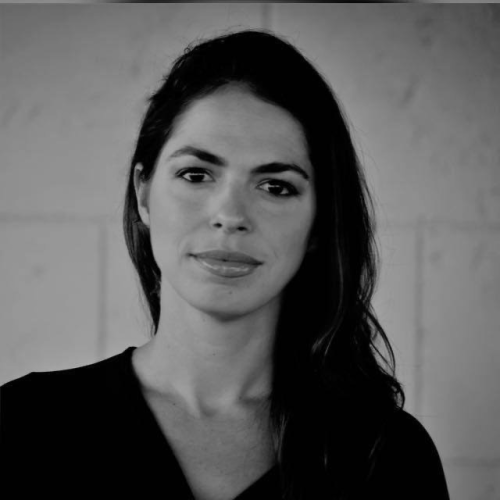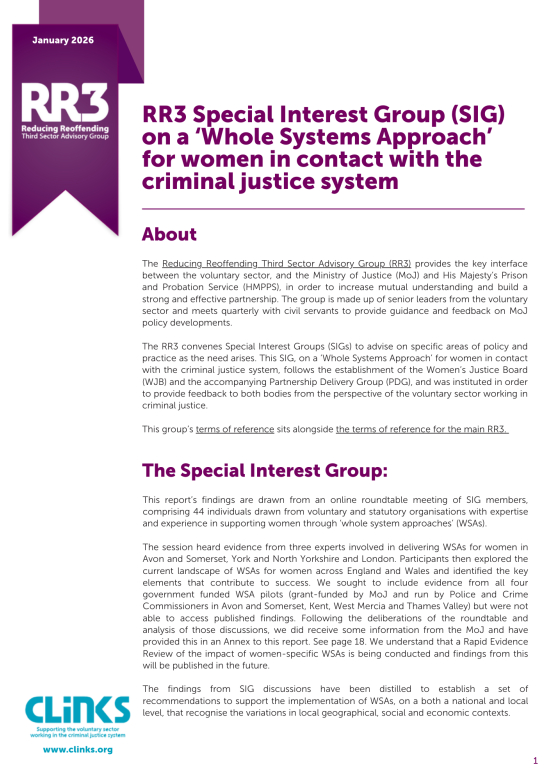In this Clinks Guest Blog, we hear from David Smith who's on secondment at the West Yorkshire PCC's office, advising the PCC on the third sector.
Since last February I have been on secondment full time to the West Yorkshire Office of the Police and Crime Commissioner as its Third Sector Adviser. It’s been a fascinating experience which came about as a result of the work Voluntary Action Leeds (VAL) did to get the West Yorkshire Safer Future Communities Network off the ground.
VAL seized the opportunity provided by the introduction of PCCs. The first problem was to get permission to operate outside its normal boundaries – the needs and interests of the sector in Bradford, Calderdale, Kirklees and Wakefield had to be accommodated as well as Leeds. This was done initially through the now disbanded West Yorks Local Development Agencies Network, and has been maintained since through regular contact and communication with Councils for the Voluntary Service and other infrastructure organisations.
With an initial £3k augmented with an additional £2k provided by Clinks (with funding from the Home Office), it was far from clear how this challenging task could best be undertaken. A network was launched in June 2012, and similar to other areas, its first big event was a hustings for PCC candidates, held in the Council Chamber at Leeds Civic Hall and chaired by Bishop John Packer shortly before his retirement. About 70 people from the sector across West Yorks put questions to the candidates, and got responses – some more convincing than others. Extra work was done in Kirklees where additional support was needed to get engagement.
Following the election VAL approached the successful candidate, Labour’s Mark Burns-Williamson. The question was whether he was willing to invest a further £5k to continue the network in the following year. He speedily agreed, and VAL led the development of Third Sector Advisory Group that reflected a wide range of sector interests – rape crisis; support for offenders and victims; user voice; domestic abuse; mental health; prevention and early intervention; drugs and alcohol treatment services. The sector was allocated a place on the new Partnership Executive Group which the PCC was quick to set up. The new Third Sector Advisory Group (with VAL’s support) set about organising an event to report back on its work to the wider sector. This took place in November 2013.
However in late 2013 one of those rare “win – win” opportunities arose to take this work a lot further than was possible with a small grant. The PCC’s office needed to find ways of increasing capacity; and VAL was changing its staffing structures to anticipate the difficult funding challenges it faced. In consequence, at the end of January 2014, I re-located from VAL’s head offices to the OPCC in Wakefield – initially for a six month trial period. In April the arrangement was extended to the end of December.
What has emerged is a model of partnership working with the third sector which is a bit different from the “network” approach which is commonly used with local Councils. For a start, I’m not a network co-ordinator but a Third Sector Adviser; and I am supported by a PCC appointed Third Sector Advisory Group rather than a network with a steering group.
Arguably it’s less democratic than the traditional model – but perhaps it’s more honest. Voice and influence networks either rely very heavily on local authority or NHS funding, or develop other services that can take them away from their core purpose. It’s difficult to get the sector to contribute to the costs of such work at local level. VAL made a strategic decision that as of November 2012, the best way in to the Criminal Justice System was through the new PCC. That meant being supportive of this newly-elected position. Our PCC said from the start that no one organisation on its own could achieve his overall aim of communities that are safer; and he said that the sector had an important role to play, not only in delivery but in strategy and planning too. It made sense, to begin with anyway, to take the new PCC at his word and help him put flesh on the bones of the commitments he had made.
Seven months on, there have been a number of positive developments. The sector has had much more influence than it would have done sitting on the side lines. The refreshed Police and Crime Plan is peppered with references to the role of the sector. Mark has signed up to the Compact for Leeds and is more than willing to sign others. An annual grants programme (valued at £1,000,000) for community groups has been launched, and is now in its third round which is focussed on equality and diversity. The sector has taken a leading role in the development of his thinking about services for victims – involving networks like Young Lives Bradford, Calderdale and Kirklees WomenCentre and the West Yorks branch of Survivors UK, amongst others. The approach taken to commissioning, through Police Regional Procurement, has been influenced, especially in the approach taken to equality impact assessments.
Who knows what the future holds for PCCs. But the voluntary/third sector in West Yorkshire will be able to look back on this period of change in the Criminal Justice System and know that it seized an opportunity to move relationships forward. Policing by consent requires a strategic alliance with the voluntary and community sector. It won’t be achieved over night but it’s a prize worthy of creativity, perseverance and … yes a bit of risk taking and courage on both sides!
David Smith
Third Sector Adviser
West Yorks Office of the Police and Crime Commissioner
2 Sept 2014
What's new
Blogs
Dr Summer Alston-Smith appointed as new CEO of Clinks
Publications
RR3 Special Interest Group (SIG) on a ‘Whole Systems Approach’ for women in contact with the criminal justice system
The RR3 SIG drives a Whole Systems Ap
Latest on X
The role is for a leader from an organisation focused on racially minoritised people, with expertise in service delivery, policy, advocacy, or related areas in criminal justice. Racial disparities are present at every CJS stage. This role ensures these voices are central in shaping policy to help address and eradicate them. Apply by Mon 18 Nov, 10am. More info: https://www.clinks.org/voluntary-community-sector/vacancies/15566 #CriminalJustice #RR3 #RacialEquity

